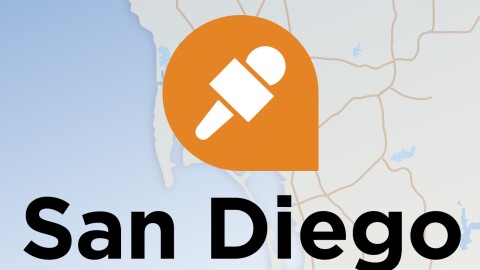Licenses are still mandatory, but a lottery for the majority of San Diego short-term vacation rentals will no longer be happening.
That's because, by the 5 p.m. Wednesday deadline, the city received less than the maximum number of licenses allowed — 5,416, representing 1% of the city's housing units.
“As of Nov. 29 at 5 p.m., the number of Tier 3 applications received was less than half of (5,416)," city spokesperson Scott Robinson said in a statement.
Paul Becker, president of Bluewater Vacation Homes, a San Diego company that manages vacation rentals, said all of his homeowners applied.
“If this is something you've been doing for years, which most of my owners have been – and this is a way they can keep their home and use it when they need to … why wouldn't you apply?” Becker said.
Mission Beach, which has a separate cap for licenses, received more applications than its individual limit of 1,100 licenses. Applicants for that community will learn the outcome of their lottery no later than Dec. 16.
Matt Valenti of Save San Diego Neighborhoods, an organization that opposes short-term rentals in residential neighborhoods, suspects that the low number of overall applicants means that some people may not be following the new regulations.
“If all of those other vacation rentals that continue to operate illegally without a license, if they aren't shut down, then it's going to send a pretty clear message that the ordinance is not enforceable,” Valenti said.
Some estimates suggest the city of San Diego had up to 16,000 short-term vacation rentals, so the relative lack of applications is a striking contrast, Becker said.
He said the estimates may have been miscalculated or exaggerated, but he still expects some more applications to come in.
“The reason why you wouldn't apply is if you were scared you wouldn't get a license, or if you moved back into the home — or you decided to long-term rent it, or you didn't want to pay the $1,000 fee,” Becker said.
The city said within the next two weeks, it will reopen the application process until the citywide cap of just over 5,400 whole-home short-term rentals is reached.
“Because short-term rentals had never been regulated in San Diego, there was limited data available on the true number of hosts operating in the City. As we get closer to the STRO effective date of May 1, 2023, the City anticipates that hosts will continue to submit applications for Tiers 1, 2 and 3,” Robinson said in a statement on behalf of the city.
Starting May 1, 2023, all short-term rental property owners will need a license to operate legally in San Diego.
-
Solar backers rallied here and across California as utility regulators consider new rules for the solar industry. In other news, December Nights returns to all of Balboa Park Friday, after three years. Plus, Diversionary Theatre debuts Charles Ludlum’s 1984 play, “The Mystery of Irma Vep.”
-
It’s the third week of the academic workers strike at UC San Diego, and students are feeling it.








